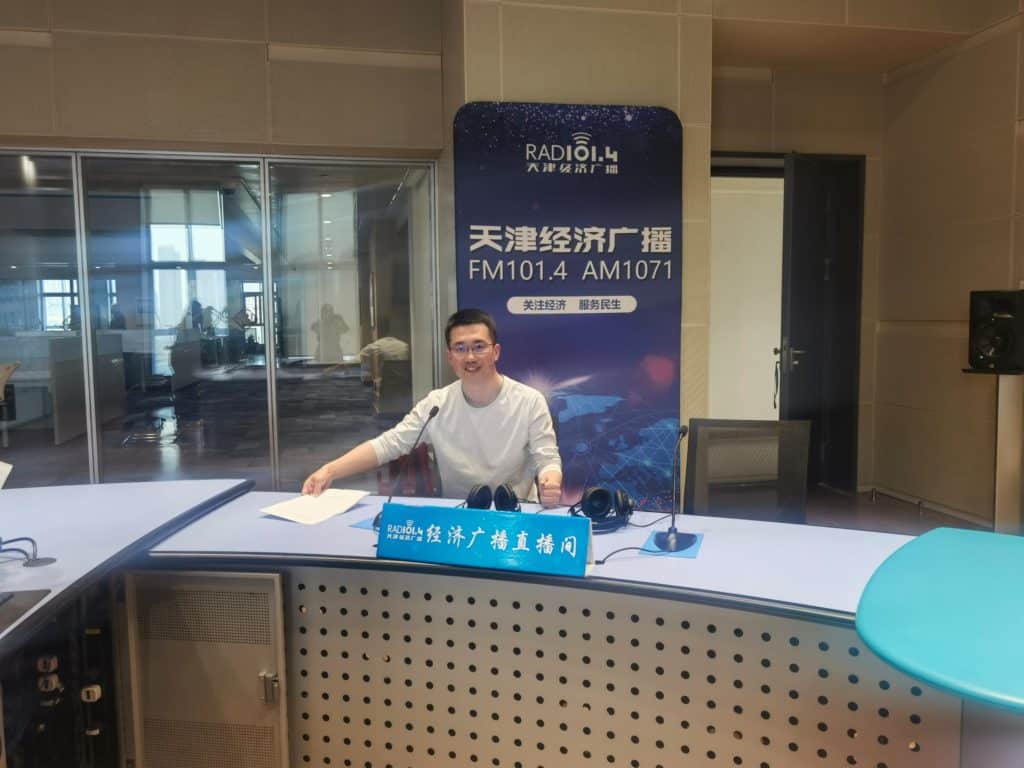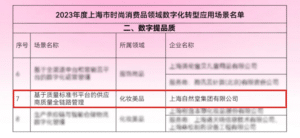The fourth of the series of “Investment Education Lecture Hall: Comprehensive Registration System, Reform to the Future”

[ad_1]
“Fortune Face to Face” – Investor Education Lecture Hall. Recently, the China Securities Regulatory Commission and the Tianjin Securities Regulatory Bureau have launched special activities on the comprehensive registration system and 315 investor education with the theme of “comprehensive registration system, reform to the future”. The Tianjin Securities Regulatory Bureau organized professional cadres and practitioners to launch 7 consecutive columns to introduce and interpret the rules of the registration system for investors and remind investors of investment risks.
Today is the 4th column. We have invited Qi Zheda, head of investor education of Tianhong Fund Management Co., Ltd., to introduce to us what changes ordinary investors will face under the full implementation of the stock issuance registration system. What advice do you have for investing. Hello Zeda.
Guest: Hello, host, and friends, audience, I am Qi Zheda, the investment education base of Tianhong Fund.
Moderator: It is said that Zheda also has another name, Mr. Su, because you like to use simple language to pass on some financial knowledge to investors. So today we are talking about the registration system, is this the same style?
Guest: Haha yes. This name was given to me by netizens on the self-media platform. Today I really want to continue this style. In fact, our theme today is what changes will ordinary investors face under the full implementation of the stock issuance registration system. What are the suggestions for investors’ follow-up investment? I think this still has to start from the essence of the registration system. I saw a metaphor in the registration-based science documents jointly produced by the Shanghai and Shenzhen Stock Exchanges and the Beijing Stock Exchange, which compared the listing of a company to a “rush exam” or “examination”. I think this metaphor is particularly good. I also want to use this analogy today. Let’s talk about the changes brought to investors by the comprehensive registration system from the perspective of “examination”.
Moderator: Alright, let’s talk about how to understand the essence of the registration system from the perspective of “examination”.
Guest: Okay, let’s continue with this analogy. If you compare the listing of a company to an exam, then in fact, the essence of the registration system reform, I think, is the change of the chief examiner. Under the approval system, before the issuer applies for listing, when it submits the papers, it must be judged by the regulatory department. The regulatory department will make a judgment on the authenticity of the issuer’s materials and investment value, and see how many points it gets. Those who fail to meet the requirements are prohibited from listing.
The essence of the registration system reform is to hand over the judging power to the market and strengthen market constraints and legal constraints. That is to say, under the registration system, the regulatory authorities are only responsible for reviewing whether the papers submitted by the issuer have fully answered all the questions, that is, whether they meet the information disclosure obligations, and will not directly give you a failure and do not prohibit you from passing the test. Securities issuance, but the quality of information disclosure must be well controlled, and the issuer’s primary responsibility for information disclosure and the “gatekeeper” responsibility of intermediary agencies must be consolidated. And the standards, procedures, content, process, and results of the review and registration are all disclosed to the public and accepted social supervision.
Then everyone can understand it like this. Under the registration system, investors have become the main examiners. This actually increases the requirements for investors to conduct in-depth analysis and research and value discovery. Moreover, in the supporting system of the comprehensive registration system, There will be a perfect delisting system. These are actually guiding our investors to abandon speculative psychology and insist on long-term investment value investment. This is in line with market laws and is also conducive to the long-term healthy development of investors and the capital market.
Moderator: I understand. The essence of the registration system is that the subject of judging papers is shifted from supervision to the market. Then I have another question, which is how to grasp the main board, science and technology innovation board, and ChiNext market during the full implementation of the stock issuance registration system reform. respective positions? Can we look at it from an exam perspective?
Guest: Good question, still from the perspective of “examination”. We can understand the company’s choice of exchange as the candidate’s choice of examination room.Then, there are three most important examination rooms, namely the main board, the Science and Technology Innovation Board, and the Growth Enterprise Market.
Because the Science and Technology Innovation Board and the Growth Enterprise Market are two examination rooms, in fact, the pilot registration system has already started before, so the most important thing in this reform is the main boards of the Shanghai Stock Exchange and the Shenzhen Stock Exchange. After more than 30 years of reform and development, my country’s stock exchange market has gradually expanded from a single sector to multiple levels. A market structure with dislocation development and complementary functions has basically taken shape.
Based on this reality, after the reform, the “examination room” of the main board should highlight the blue-chip characteristics of the market, and focus on supporting high-quality “candidates” (high-quality enterprises) with mature business models, stable operating performance, large scale, and industry representatives.
In addition, after the reform, the listing conditions of the main board “examination room” are more inclusive than before the reform, allowing more “candidates” to have the opportunity to take the exam. For example, after the reform, it is no longer mandatory to make profits for three consecutive years. Of course, the main board still has a certain distance from the listing conditions of the “examination room” of the Science and Technology Innovation Board and the ChiNext Board.
To sum up, after the reform of the main board, the multi-level capital market system will become clearer, covering basically different industries, different types, and different growth stages of enterprises.
The main board mainly serves large-scale enterprises in the mature stage.
The Science and Technology Innovation Board highlights the characteristics of “hard technology” and plays the role of “experimental field” for capital market reform.
The GEM mainly serves growth-oriented innovative and entrepreneurial enterprises.
This is the positioning and difference of each “examination room”.
Moderator: Sure enough, understanding the registration system from the perspective of “examination” and “examination room” is easy to understand a lot at once. Then I understand that the comprehensive registration system lowers the threshold for companies to rush for the exam and go public. Moreover, companies can also Choose the examination room according to your own characteristics. Our current multi-level capital market system basically covers and satisfies enterprises in different industries, types, and stages of growth. So looking back to our current “judgment” subject investors, what kind of candidates will they face? In other words, what conditions do our domestic companies need to take the exam for the initial public offering of securities? Can you sum it up for investors?
Guest: Indeed, although the threshold has been lowered, there are still some basic conditions that need to be met. If we understand it simply, the basic conditions mainly include the following.
(1) “Candidates” must be adults and healthy.
That is: if the issuer is a joint stock limited company established in accordance with the law and has been operating continuously for more than 3 years, it has a sound and well-operated organizational structure, and relevant institutions and personnel can perform their duties in accordance with the law.
(2) The account of the “candidate” must be remembered clearly.
That is: the preparation and disclosure of the issuer’s financial statements complies with the provisions of the Accounting Standards for Business Enterprises and relevant information disclosure rules, and fairly reflects the issuer’s financial status, operating results and cash flows in all material aspects. Accountants issue audit reports with unqualified opinions. The issuer’s internal control system is sound and effectively implemented, which can reasonably guarantee the company’s operating efficiency, legal compliance, and reliability of financial reports, and a certified public accountant issues an internal control assurance report with unqualified conclusions.
(3) “Candidates” must have core competitiveness.
That is: the issuer has a complete business and the ability to directly face the market and continue to operate independently. Specifically, ① the assets are complete; ② the main business, control and management team are stable; ③ there are no major ownership disputes involving major assets, core technologies, trademarks, etc., major debt repayment risks, major guarantees, litigation, arbitration and other contingencies, Matters that have had or are about to undergo major changes in the operating environment, such as matters that have a major adverse impact on continuous operations.
(4) “Candidates” must abide by discipline and law.
That is: the issuer’s production and operation conform to the provisions of laws and administrative regulations, and the national industrial policy.
In the past three years, the issuer and its controlling shareholders and actual controllers have no criminal offenses of corruption, bribery, embezzlement, misappropriation of property, or disruption of the order of the socialist market economy, and no fraudulent issuance, major information disclosure violations, or other issues involving national security , public safety, ecological safety, production safety, public health and safety and other major violations. Directors, supervisors and senior managers have not been subject to administrative punishment by the CSRC in the past three years, or have been investigated by judicial authorities for suspected crimes, or are under investigation by the CSRC for suspected violations of laws and regulations and have not yet had a clear conclusion.
Of course, these are only the basic conditions for issuance. If it is issued and listed in the various examination venues just mentioned, there will be detailed standards for each examination venue.
Moderator: Understood. In fact, through the question just now, we can also hear that from the perspective of investors, we will actually face a more robust and more selective market. So are there any specific changes? , Also introduce to investors and friends?
Guest: There must be specific changes. For example, the most intuitive point is that under the comprehensive registration system, the “23 times the price-earnings ratio ceiling” will be abolished. The era of “brainless innovation” is gone forever. Leave it to the market. In 2014, the China Securities Regulatory Commission issued the “Measures on Strengthening the Supervision of New Share Issuance”, which clarified that issuers should determine the industry they belong to according to the “Guidelines for the Industry Classification of Listed Companies”, and select the static average price-earnings ratio of the latest month issued by China Securities Index Co., Ltd. as a reference basis. That is to say, from this time, when new shares are issued, their issue price has a “guidance price” not exceeding 23 times the price-earnings ratio. In this way, the issuance price of new shares has a ceiling, and it is a relatively low ceiling, so investors are “brainless to start new”, as long as they win the lottery, it is almost a matter of making a profit without losing money.
Therefore, under this background, launching a new company is a matter of luck, and it also allows investors to omit the core link of really studying the company’s fundamentals and fully understanding the company’s value in the process of launching a new company. In fact, this is not conducive to investment. The investor’s correct investment philosophy is developed.
After the full registration system, the price inquiry and pricing mechanism for new shares will be more perfect, and new listing on the main board is no longer a risk-free arbitrage. I also hope that our investors and friends will be more cautious about launching new shares.
Moderator: In addition to launching new projects, does it also put forward higher requirements for our investors?
Guest: Yes, after all, back to the issues we discussed just now, the right to judge papers is given to investors, and the judging papers does not end with a score, but requires the investment of real money from investors , and bear the corresponding risks in order to participate in this “scoring”.
Many people believe that the comprehensive registration system will lead to the expansion of A-shares, and even mixed fish and dragons, and the risks faced by investors will also increase. But in fact, I think the so-called expansion, or a mixture of fish and dragons, is actually a more appropriate word should be metabolism, or survival of the fittest. And I think that the reform of the comprehensive registration system will be accompanied by the continuous improvement of the delisting system and delisting mechanism, which will definitely be helpful for improving the quality of A-share listed companies through the wit of survival of the fittest.
Then I went back to what the host said, which put forward higher requirements for investors. I think from the perspective of the history and thinking of capital market reforms, whether it is the new delisting regulations, strict crackdown on counterfeiting, or the reform of the registration system, they are all It has been guiding investors to rationally invest in value investment. This comprehensive registration system reform, whether it is for institutional investors like Tianhong Fund or for individual investors, will face a wider range of investment options. Broader, at the same time the volatility of investment, investment risk will increase.
This naturally requires investors to have higher maturity, deeper research efforts, longer-term investment philosophy, and even more research time and more energy. It is also suggested here that the majority of investors can participate in capital market investment through institutional investors such as funds if they do not have sufficient professional ability and enough time and energy. I also hope that today’s audience can understand the deep meaning of the reform, and can better practice the concept of rational investment and value investment in future investments.
Moderator: Okay, today we have shared the essence of the comprehensive registration system and some of its impact on our investors from the perspective of companies rushing for the exam. I believe it will help our audience and friends better understand the connotation of the full implementation of the stock issuance registration system , and a better understanding and practice of the concept of rational investment value investment. Thanks to Zheda (Pu Su) for his wonderful sharing. goodbye.
Guest: Goodbye.
Today’s “Securities Today” program is coming to an end here. The host XX, on behalf of the editor XX, thank you for listening.
[ad_2]
Source link







